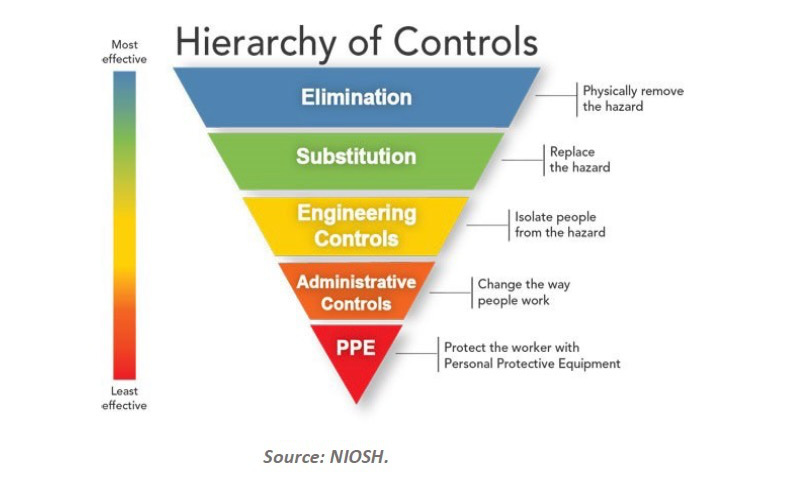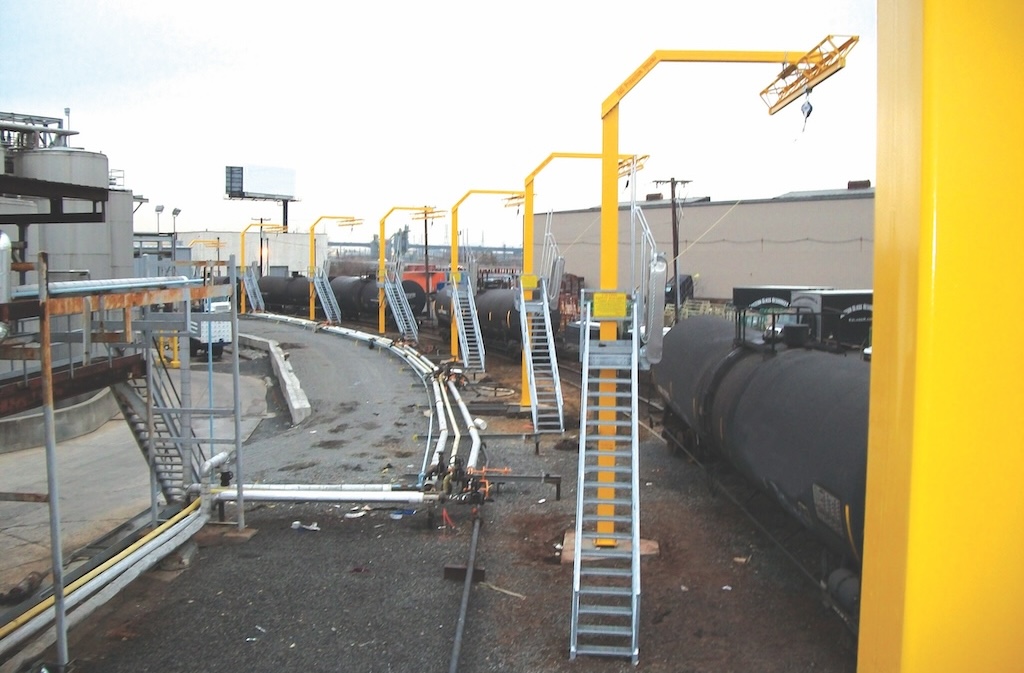Flexibility enhances the best of rules
The 17th century philosopher and theologian Robert Burton wrote that “no rule is so general which admits of no exception.”
It’s a thought for rule makers and rule enforcers—managers and supervisors—to ponder. Presumably, rules are established with a positive purpose in mind. In short, so far as the plant or company is involved, adherence to a rule in question should be beneficial to its bottom line performance. But referring to Burton’s “exception,” it occasionally happens that in breaking or sidestepping rules, not only is the company’s bottom line better served, but so are the involved parties.
One spring, in a Connecticut manufacturing plant, a bulletin board notice was posted advising employees a plant shutdown for vacation was three weeks away.
Several employees were disappointed by the news, no one more so than Instrument Mechanic Cliff Brogan, who on the heels of the posting stormed up to his boss’s desk.
“What’s the problem?” Maintenance Foreman Jeff Rubin asked.
“The problem is the plant shutdown for vacation. I bought a camper that will be delivered in two months. The family has been looking forward all year to taking our vacation at that time and visiting my brother in Kansas.”
“That’s tough,” Rubin sympathized, “but the plant shutdown has been set. There’s nothing I can do about it.”
“You can make an exception in my case. Some work is done during shutdown. Inventory is taken, special orders are filled, and work maintenance is performed on selected equipment. I can pitch in on any of that stuff.”
“Sorry,” Rubin replied. “Crews have already been selected for those chores.”
Brogan didn’t give up easily. “Do you mind if I make a pitch to Mr. Forrest, to approve my working during shutdown?”
Rubin shrugged. “Be my guest.”
Question: Should an exception to the shutdown be made to Brogan’s convenience?
Forrest’s Verdict : “I don’t think the plant will collapse if we make an exception and assign Brogan work during shutdown. Good people are hard to find and keep these days, and Brogan’s record is exemplary. Bending a rule to ensure his continued good morale and performance will benefit all parties involved.”
Can a supervisor pitch in to get things moving?
What could have possessed him to accept this job? Maintenance Foreman Joe Cadbury thought bitterly. He could have been a salesman, a scientist, or a podiatrist. How did he wind up a supervisor? He couldn’t have been thinking clearly.
Cadbury was two workers short. The department was behind on more projects than they were on schedule. To make matters worse, the operation resembled a slow motion movie. The crew moved like it was at a funeral instead of trying to deal with the backlog.
Quail was a prime example. The carpenter was halfheartedly constructing a jig that should have been delivered yesterday. Where was he now? Probably in the men’s room for a smoke, or gabbing at the water cooler. This outfit needed a hotfoot.
Cadbury waited for Quail to return and demanded, “What’s taking so long? This is a six-hour project; you’ve been on it 10 hours already.”
“It’s a complicated job,” the carpenter grumbled, looking more indignant than guilty. “I want to make sure I get it right.”
“Yeah, sure!” his boss snapped. “You should have been done hours ago. Go work on that shelving. I’ll wind this up in less than an hour.”
Cadbury was good as his word. Minutes after completing the jig, Unit Representative Vince Grady flounced up to his desk.
“What goes on here?” he demanded. “Since when is a foreman authorized to perform bargaining unit work?”
“Do you have any idea how far behind we are?” Cadbury countered. “I had to do something to get these guys moving.”
Quail refused to settle for this explanation.
Question: Was the foreman justified in taking over in order to speed up the work pace?
Burnside’s Verdict : “I can appreciate your frustration,” Plant Engineer Frank Burnside told Cadbury after being told what happened. “But bargaining unit work is bargaining unit work and this job was no emergency. If the operation is creeping instead of jumping, your task is to get after the slow pokes. If Quail or anyone else isn’t performing to standard, you should be clamping down on them instead of taking over yourself.”
Can you restrict overtime on health preservation grounds?
When Utilityman Craig Donnelly suffered a heart attack and died two-and-a-half hours into his overtime stint, Plant Manager Calvin Crowley was disturbed.
“That guy never should have been permitted to put in those extra hours,” he said. “If he didn’t have the sense to know that himself, there should have been a rule in force to restrict him.”
An executive meeting was called.
It was pointed out at the meeting that Donnelly had a long-standing heart condition and had suffered two previous attacks.
“Heart trouble is only one problem that afflicts some employees. There are other serious conditions as well,” Crowley said. “Any doctor worth his salt would confirm that people with heart disease and certain other conditions are less able to withstand the stress and strain of an extended work day.” He proposed a sweeping rule that employees who, as a result of a major health ailment, would be in jeopardy because of overexertion, should not be permitted to work overtime.
The plant manager assigned Personnel Director Barney Griswald the task of compiling a list of personnel the restriction would cover. The plant manager justified his decision first on the company’s caring about the health and welfare of its employees. Secondarily, Crowley added, such a rule would help protect the company from possible workmen’s compensation claims. An executive meeting was called to discuss the proposal.
Question: Is Crowley’s restriction against overtime a viable suggestion?
Management’s Decision : Plant Engineer Harry Ross had his misgivings regarding Crowley’s proposal. So did Human Resources Manager Tom Shuttleworth.
“I don’t think the idea will hold water,” Shuttleworth said. “Heart trouble and a host of other health conditions fall under a variety of classifications. Some are subject to jeopardy from strain, others are not.”
Ross agreed. “Only a qualified doctor can make that decision.”
Shuttleworth added, “Rather than enact a blanket overtime restriction, where doubt exists it might be preferable for the employee in question to be required to get the health department’s approval. Department and section supervisors should be best qualified to enforce this requirement.”
“Makes sense,” Crowley said thoughtfully. “Let’s get that stipulation into the works.”
Can a labor relations delegate study the contract on company time?
When the union was voted out two years ago, a Labor Relations workforce group was appointed to help settle labor-management disputes. Electrician Grade I Charley Davis was elected Committee Leader to head the group.
One day, 15 minutes after the end of a work break, Maintenance Supervisor Don Wang passed through the lunchroom to find Davis mulling over the labor agreement.
“What are you doing here?” he demanded. “You were assigned to track down a short circuit in the lab.”
“Joe Sokoloff thinks he was given the shaft on his vacation entitlement,” Davis replied. “I’m studying the contract to determine if a grievance is warranted.”
“The work comes first,” Wang said. “The lab is crying blue murder. Get over there and do the job you’re assigned. Study the contract on your own time.”
“The contract is complicated on this issue. It’s my responsibility as Committee Leader to get this dispute straightened out. The first step is to make sure of what the contract specifies.”
Wang refused to settle for that. “Get back to work or you’ll face a suspension.”
Question: Does Davis have to stop reading the contract and do his assigned job in the lab?
Durkin’s Ruling : “Assign someone else to the lab job,” Plant Engineer Ken Durkin instructed Wang. “When the union was in force, a steward would have had the right to study the contract. A committee leader under the new setup up is entitled to no less.”
Performance appraisals: Do them right, or not at all
Are performance appraisals worth the time and effort? Most managers and supervisors agree they can be useful if performed thoughtfully and documented diligently.
Appraisal sessions help pinpoint performance problems, make plans in conjunction with employees to address them, track subsequent performance, determine eligibility for promotion or wage increase, plan career development, and boost productivity. They can also protect an employer against discrimination claims.
But every coin has two sides. Conducted thoughtlessly and too routinely, performance appraisal can have a negative effect; can even serve as ammunition for workers who claim to be victims of unequal and discriminatory treatment.
In a New Jersey plant, Maintenance Foreman George Raskin issued a termination notice to Electrician Grade II Arnold Sandow. An eight-year veteran employee, 62-year-old Sandow indignantly contested the dismissal, claiming he was being fired because of his age, not his performance.
Raskin held fast to his contention that the electrician’s work was substandard and his age had nothing to do with it.
“You can’t fire me for substandard performance,” the worker charged. “At an appraisal session you rated my work as satisfactory. I have the documentation to prove it.”
“That was three years ago,” the foreman replied.
Question: Is Sandow’s “satisfactory” rating three years prior, sufficient evidence to get his termination reversed?
Joiner’s Verdict : “The dismissal stands,” Plant Engineer John Joiner ruled. “Sandow’s satisfactory rating three years ago no longer holds. At his last three appraisal meetings his flagging performance was called to his attention. At the last session he was warned that his job would be in jeopardy if he failed to improve. Since that time his performance had gone steadily downhill. This was all documented in detail with signed copies given to Sandow.”
Moral of the story: Support performance appraisal meetings with well-documented evidence that will hold up if and when necessary.
Don’t sit still for employee threats
Second Grade Welder Tony DeCicco stomped up to his boss’s desk smarting for a fight.
“What’s the problem,” Maintenance Supervisor
Charley Greenstein asked.
“This 5-day suspension I was just handed. I got three kids to support. I can’t afford a 5-day suspension.”
“You should have thought about that before screwing up.”
“(Unprintable expletive). The suspension’s unjustified.”
His boss disagreed. “I’m sorry about your financial loss; but you had it coming and you know it. You were warned on four separate occasions to call in when you expect to be absent and you were told to bring in a doctor’s note to explain the reason for absences.”
DeCicco’s florid face deepened another shade of red. “I’m not standing still for this (unprintable expletive).
Greenstein was losing patience. “Get back to work, Tony, before I add more time to that suspension.”
DeCicco’s lips tightened. “Let me tell you something, pal. You’re messing with the wrong guy.”
“Get back to work. I won’t tell you again.”
By now DeCicco’s face was a fiery red. “Don’t say I didn’t warn you,” he threatened. “I’ll see you outside after work. Get ready for the beating of your life.”
Question: In Greenstein’s place, how would you deal with this?
Del Toro’s Response : When Plant Engineer Charles Del Toro heard what had transpired he lost no time adding his signature to the Dismissal Notice Greenstein placed before him. “With workplace violence increasing,” he said, “a physical threat against a supervisor calls for the ultimate penalty. Give DeCicco this notice and have a security man escort him out of this plant.”
No compromise with safety violation
Group Leader Bill Crenshaw happened to be passing through a new section of Building C when he noticed that Electrician Class II Art Tracy was working on a fuse box without a safety helmet.
A policy manual ruling italicized for emphasis stated that violation of safety regulations would be penalized by suspension or dismissal.
“Are you blind?” Crenshaw asked.
He pointed to the signs prominently placed nearby. One boldly stated, Hazardous Area . Another proclaimed, Safety Gear Must By Warn At All Times .
“Oh, that,” Tracy groused. “That damn helmet makes me sweat. I took it off for a few minutes.”
“Well, put it back on,” Crenshaw ordered and continued on his way.
An hour of so later Maintenance Supervisor Jack Raines passed through the same area. He spotted Tracy hard at work, the safety helmet still at his side.
“That’s it, pal, three-day suspension.”
“Hey, give me a break,” Tracy replied. “I told Bill Crenshaw that the helmet makes me sweat. He didn’t make a big deal of it.”
Raines tightened his lips. “Three days, Tracy. If it happens again, it’s curtains.”
When Raines returned to his desk, he issued a slip demoting Bill Crenshaw.
Question: Do you think the group leader’s demotion was justified?
Singer’s Ruling : “It’s absolutely justified,” Plant Engineer Lee Singer ruled when the case was spelled out to him. “For one thing, Crenshaw failed to report Tracy’s violation. For another, he didn’t even return to check that his order to put on the helmet had been followed. If there’s one thing we don’t compromise with around here, it’s safety.”
Can a search firm keep recruiting?
Fair is fair, Assistant Plant Engineer Edgar Davis decided when tipped off that Arnold Griffen, a top-rated engineer, had been approached by a recruiter from Simmons & Lowe, the executive search firm that had placed him 14 months prior. If he read it right, the search firm’s action was dirty pool.
Davis asked Griffen what his conversation with the recruiter was all about.
Griffen shrugged. “They want to know if I’m available.”
“Did he offer you a job?”
“Not yet. He mentioned that an interesting opportunity might be coming up and said he’d get back to me.”
“Did you tell him you’re available?”
“Not really. But I told him I’m always ready to listen.”
Davis offered no further comment but made a quick trip to Plant Engineer Harold Trane’s office.
Question: What action if any would you take in Trane’s place?
Trane’s response : “Let’s take a look at our contract with Simmons & Lowe.”
Upon doing so, Trane said, “Just as I thought: The contract stipulates that in filling jobs ‘the client organization is off limits for a period of 2 years following a placement.’ I’ll contact them to cease and desist.”
He added, “A handy clause to have around.”
Is a “No Vacation” decree enforceable?
The Apex order was a whopper, one of the largest in the company’s long history. Received in the middle of June, an August 15 delivery date was specified.
“It’s absolutely essential,” Plant Manager Dan Goodfriend proclaimed at a management-supervision meeting, “that all parts are shipped out by the 14 of August.”
“Amen,” Production Manager Joel Reed replied.
Fulfilling that mandate was going to tie up the plant, Production and Maintenance in particular, on a heavy overtime basis…
“We can’t take any chances,” Plant Engineer Tom Cogan said thoughtfully. “Perhaps we should post a bulletin restricting vacations during the first two weeks of July.”
“Good idea,” Goodfriend agreed.
But life is never simple. Within minutes of the notice’s appearance, the offices of Cogan and Reed were swamped with complaining employees.
“My family has scheduled our vacation for the first two weeks in July for years,” one worker griped.
Another declared, “Those first two weeks are the prime vacation weeks of the year. You can’t unilaterally restrict them.”
A third groused, “You can hire temps to fill in if need be.”
When management stuck to its gun, threats like “We’ll see about that” flew faster than confetti on New Years Eve.”
Question: Does management have a right to mandate a two-week vacation restriction for that time?
Expert’s Ruling : Plant Engineer Tom Cogan called Anita Roth, a longtime respected arbitrator and old friend, and explained the situation. “I can’t guarantee there won’t be repercussions,” she replied. “But based on past cases I’m familiar with, a company cannot be literally held to precedence as to when vacations may or may not be allowed. Where economic exigency exists, management is obliged with the well being of customers, stockholders—and employees—in mind, to fulfill its bottom line responsibility. In your place I’d hold firm to that mandate.”



